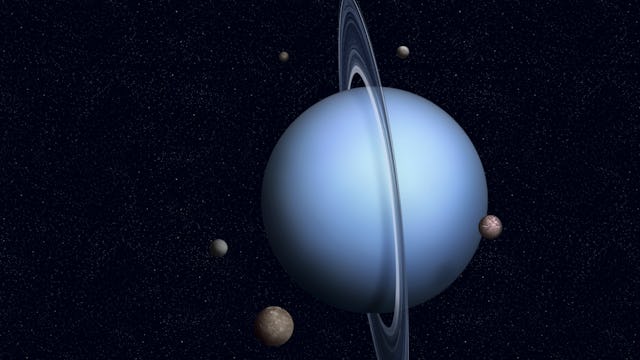Your Kids Will Be Delighted To Learn That Uranus Is Actually A Giant Ball Of Farts

Uranus is about to be the butt of so many more jokes
That joyful sound you hear today is the entire internet giggling, and at science, no less. Science isn’t normally the funniest of subjects, so what’s going on, exactly? Well, a study just found that Uranus (of course it’s Uranus) is basically a giant, floating ball of farts out in space.
It’s OK to laugh. Everyone else is.
So Uranus isn’t literally covered in a fart cloud. But the research found that its upper atmosphere is mostly made up of hydrogen sulphide, the compound responsible for giving farts their unique, well, fart smell. It’s also the compound that makes rotten eggs stink.
According to Patrick Irwin, a scientist at the University of Oxford who co-authored the study, “If an unfortunate human were ever to descend through Uranus’s clouds, they would be met with very unpleasant and odiferous conditions.”
And an envelope of fart smell would likely be the last thing that human ever noticed, because Uranus is far from habitable for people.
“Suffocation and exposure in the -200 degrees Celsius atmosphere made of mostly hydrogen, helium and methane would take its toll long before the smell,” Irwin added.
This hilarious scientific development came from data collected from Hawaii’s Gemini North telescope. And apparently, scientists have been arguing for a long time over just how farty Uranus might be. While many in the scientific community suspected its atmosphere had high levels of hydrogen sulphide, others expected it to be made up of ammonia, like the atmospheres of Saturn and Jupiter. Finally, the fart side has won out, and we know Uranus is officially the smelliest planet in the solar system. For a planet that’s already the butt of so many jokes (pun intended), the comedic value here is immeasurable. Plus, this is a science lesson your kids are sure to get a real gas out of.
There’s only one question left for science to answer today: Which scientist smelt it, because we need to know who dealt it.
This article was originally published on